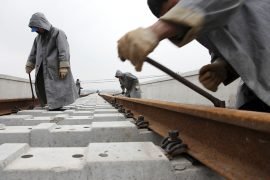[dropcap letter=”F”]
or many years, feminists were considered crazy people obsessed with a subject and it seemed they were not going anywhere. Did you think you would see this moment?
I did not think it was possible. I was born in 1943, and in those years the horizon of women was to get married and have children. And professionally, we could act as secretaries or teachers, as long as we did not marry. If at the age of 20 I had been told that I would see women in Parliament, the first mayor of Barcelona or that I myself would be a professor emeritus of Sociology and a councilor of the Barcelona’s city council… I would not have believed it. Another good symptom is that something as buried as gender violence has emerged. When I was director of the Women’s Institute of Madrid from 1993 to 1996 and the police passed me the list of women murdered by their husbands, lovers and other people, not even the newspapers wanted to publish the news! It was invisible and a taboo. Now we can talk about it.
 It has also changed the publicity, the political speeches, the mentality…
It has also changed the publicity, the political speeches, the mentality…
Yes, but not as much as it seems. Years ago the socialization of the girls was done through repression: you could not jump, go by bicycle, study… I was told to wash the dishes while my brothers went out to play, I asked why and we argued. You knew what you were fighting against. Now it is more subtle. They sell you that you have to be very pretty and thin, you have to make up and triumph. This throw girls to adopt the roles of traditional women, of a woman as a object who is only aware of how others see them. If I were 20 years old now, it would be very difficult to get out of that, because it’s not only the model you get in the media, but it comes from your friends, boys… How do you oppose getting more likes?
That is, we are still not where we wanted to be.
No, in no way we are where we wanted to be.
Despite there are many people, even women, who think it in this way. What would you say?
Look at the number of women murdered. We do not have this statistic data in men, nor do we want to have it! Let’s see who occupy the time on television. Women, we are in frivolous matters, but serious problems such as economics or politics are for men. In the university, there is only 20-25% of women teacher. And we still do not appear in textbooks. All of that is machismo.
Sometimes it seems that laws have advanced more than people.
It is easier to sign agreements than to change reality. Reality is made of what culture has transmitted to us, it is much deeper, it comes out at any moment without realizing it. Women are also sexist, because we have been educated in a macho culture.
After so many years, do you still have mindless macho attitudes?
Yes, many times. One day a nephew and a niece came to eat at home, and in a moment I said to her: “Set the table.” And I thought: “Why do not I said this both of you?” And there I came up with one thing I recommend: before telling someone something, ask yourself if you would say the same thing to them if it were the opposite sex. We have to be able to analyse our mentality and change it or we will reproduce the same, no matter how many laws there are.
At our historical time, what are the next goals to achieve?
Revalue everything that comes from the female gender, such as care. We must give them the importance they have and stop considering them a waste of time to make them universal and that men also are part of them. And it is urgent to change the male gender model. We continue to educate children to be warriors, strong, to impose themselves, not to be afraid of anything or anyone … in this time the figure of the warrior is no longer useful in our society.
The Women we are clear about what feminism would benefit us, but… men are clear about what feminism would benefit them?
They would be more free, they would develop the capacities they wanted, not just those that are now socially accepted. They would even die less from accidents!
Let’s stop talking about minimums. Think of maximums. What would you like to see in the near future?
I would like to see a woman President of the Spanish Government and Generalitat [Catalan Autonomous Government]. And women able to show a different way of doing politics: instead of insults and confrontations, collaboration, agreements and teamwork. If we do the same thing that men have done historically, we forget everything innovative and useful that we can contribute.
You are the author of Rosa y azul [Pink and blue], a book about the transmission of genres in the mixed school that opened our eyes and marked the way forward. What should be the role of education today to end the androcentric model?
The fundamental thing at this moment is to educate men in another way. The girls have already changed. Keep in mind that my father did not want me to go to college, so I would not be frustrated because, in general, I could be a secretary at the most… Now girls go to college in a higher proportion than boys. Then, the female way of life has opened. Now we have to change the boys.
What advice would you give to fathers, mothers and teachers?
Do not treat children differently. Any human behaviour, as long as it is ethical, is valid for anyone. We must go towards the disappearance of the genres.
Interview: Ana Portolés
Photo: Laia Sabaté
You can read more stories like this on ALMA, the social social media, a digital space devoted to the social field, which brings a new look at the present and the future of society, from an optimistic and diverse point of view, and from all the initiatives that “la Caixa” Foundation promote.


















